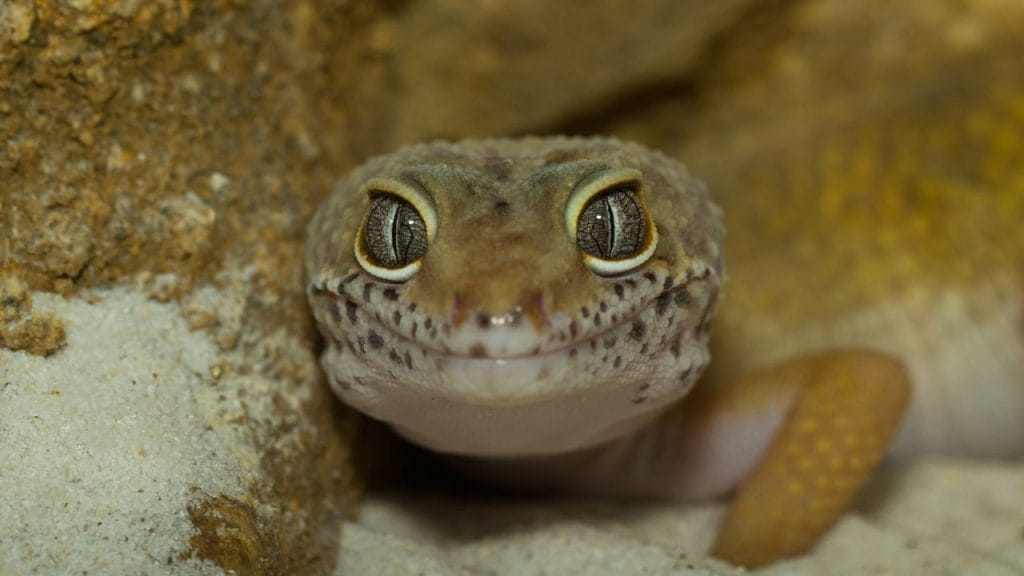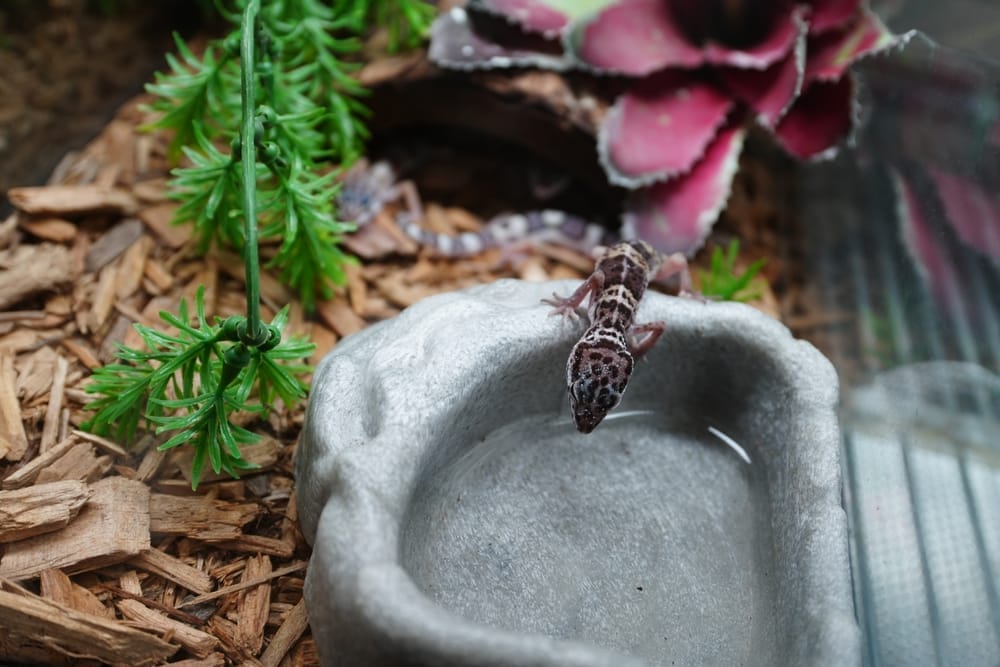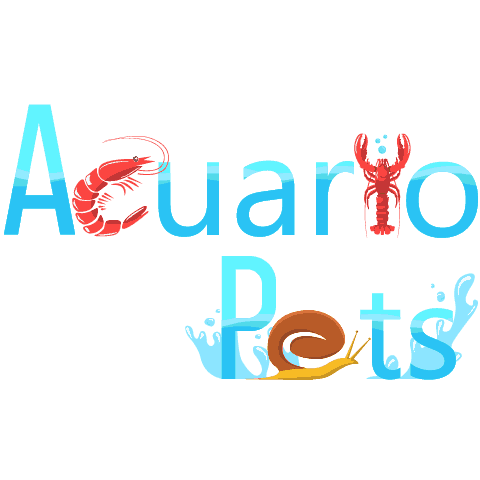This post was created with help from AI tools and carefully reviewed by a human (Muntaseer Rahman) . For more on how we use AI on this site, check out our Editorial Policy.
Check Out These FREE Tools We Made JUST For You!
Can Leopard Geckos Eat Fruit? What Vets Wish You Knew

You want to spoil your gecko a little. Maybe a slice of mango here, a blueberry there—what harm could it do?
As harmless as it seems, many owners are unknowingly setting their pets up for digestive disasters.
Here’s what the experts say you should be doing instead.

Why People Think Fruit Is Okay
It’s not hard to see why people get this wrong. Fruit looks healthy. Smells nice. We eat it. So our pets should love it too, right?
That’s how the trap starts.
Then they watch a few cute gecko videos on Instagram, maybe see a crested gecko licking mashed banana off someone’s finger. Boom—fruit gets lumped into the “treats” category for all reptiles.
Spoiler: Leopard geckos didn’t get the memo.
Some pet stores add to the mess. They sell fruit-based reptile foods labeled as “natural” or “complete,” even if they’re made for entirely different species. No wonder people get confused.
And then there’s the baby food trick. Some owners try to syringe-feed sick geckos fruit-flavored baby food thinking it’s gentle or nutritious. It’s not.
It’s sugar and fiber wrapped in a glass jar. For an insect-eating lizard, that’s like asking your uncle with diabetes to drink a fruit smoothie for dinner.
The road to bloated geckos is paved with fruity intentions.

The Problem With Fruit for Leopard Geckos
Leopard geckos are insect-eaters. Their bodies are built for bugs, not bananas.
They don’t have the right gut bacteria to break down sugar and fiber. So when they eat fruit, it just sits there and causes trouble. Gas. Diarrhea. Sometimes even impaction.
Fruits are also full of moisture. That sounds harmless, but too much water can mess with their digestion. You’ll see loose stool, and your gecko might stop eating for a while.
Then there’s the sugar spike. Their bodies aren’t made to handle it. They don’t use sugar for energy like we do. It just throws everything off.
And worst of all? Fruit gives you nothing your gecko actually needs. No protein. No fat. No reason to offer it—ever.
Bugs are where the real nutrition is. Fruit is just a juicy detour to vet bills.

What Vets Actually Recommend
Vets don’t beat around the bush. Leopard geckos should eat insects. That’s it.
Crickets, dubia roaches, mealworms, and the occasional waxworm if you’re feeling generous. But even waxworms are like junk food—fine once in a while, not every day.
Those bugs should be gut-loaded. That means feeding the bugs nutritious food 24 hours before offering them to your gecko. You’re not just feeding the gecko—you’re feeding what the gecko eats.
Dust the bugs with calcium powder too. And at least once or twice a week, use a multivitamin. Vets actually see metabolic bone disease way too often in geckos, just because people skip supplements.
No fruit. No veggies. No blended baby food with pictures of smiling bananas on the label.
Just bugs. Well-fed, dusted, wriggly bugs. That’s the vet-approved menu.

Common Mistakes New Owners Make
1. Mixing fruit with insects
Some owners think they’re boosting the meal by adding mashed fruit on top. It doesn’t help. It just makes a sticky, sugary mess that can upset the gecko’s stomach.
2. Offering fruit baby food
Baby food looks harmless. It’s soft, easy to swallow, smells sweet. But leopard geckos can’t digest it. Even the “organic” stuff is still full of sugars and fiber.
3. Copying diets from other reptiles
Crested geckos and bearded dragons can handle some fruit. Leopard geckos can’t. Just because one lizard likes berries doesn’t mean yours should get a taste.
4. Believing pet store labels
Some commercial foods say “great for all reptiles.” That’s lazy marketing. One size doesn’t fit all. If the first ingredient is banana or apple, skip it.
5. Using fruit as a treat
Leopard geckos don’t need treats like we do. A juicy worm or roach is already a five-star dessert for them.
Being a new owner is hard. But skipping the fruit is one of the easiest wins you can get right.

Better Treat Options (If You Really Want to Spoil Your Gecko)
If you’re itching to spoil your gecko, don’t reach for fruit. Reach for bugs.
1. Waxworms
These are fatty little guys. Geckos go wild for them. But don’t overdo it—think of waxworms like ice cream. Once a week is more than enough.
2. Hornworms
Bright, wiggly, and packed with moisture. Great for hydration, especially if your gecko’s been acting sluggish. Just don’t use them as a daily meal.
3. Silkworms
Soft, high in protein, and easier to digest. Many owners say their gecko gets more active after a silkworm snack. That’s a win.
4. Variety in bugs
Rotating between crickets, dubia roaches, and mealworms keeps things interesting. Different bugs mean different nutrients. Your gecko won’t get bored—or nutrient deficient.
5. Tong feeding time
If you want bonding time, feed by hand with tongs. Wiggling a bug right in front of your gecko turns snack time into a little hunting game.
So yeah—skip the strawberry. Go for a good bug buffet. That’s how you treat a gecko right.

What Happens If Your Gecko Accidentally Eats Fruit?
Don’t panic if it happened once. One bite won’t kill your gecko. But you do need to keep an eye out.
The most common sign? Runny poop. That’s usually the first red flag. Fruit is high in water and fiber, and leopard geckos aren’t built to handle that combo.
They might also get bloated or seem less active. If your gecko skips meals for a day or two, that’s normal after a digestive upset.
What should you do? Stop offering fruit immediately. Keep the tank warm. Offer gut-loaded insects only. Make sure the gecko stays hydrated with clean water in the dish.
If things don’t improve in a few days—or if your gecko looks very weak, thin, or refuses all food—call a reptile vet. Better safe than sorry.
Next time, just remember: fruit is for you. Bugs are for them.
About Author
Hello, I’m Muntaseer Rahman, the owner of AcuarioPets.com. I’m passionate about aquarium pets like shrimps, snails, crabs, and crayfish. I’ve created this website to share my expertise and help you provide better care for these amazing pets.
Disclaimer
This site is owned and operated by Muntaseer Rahman. AcuarioPets.com is a participant in the Amazon Services LLC Associates Program, an affiliate advertising program designed to provide a means for sites to earn advertising fees by advertising and linking to Amazon.com. This site also participates in other affiliate programs and is compensated for referring traffic and business to these companies.

